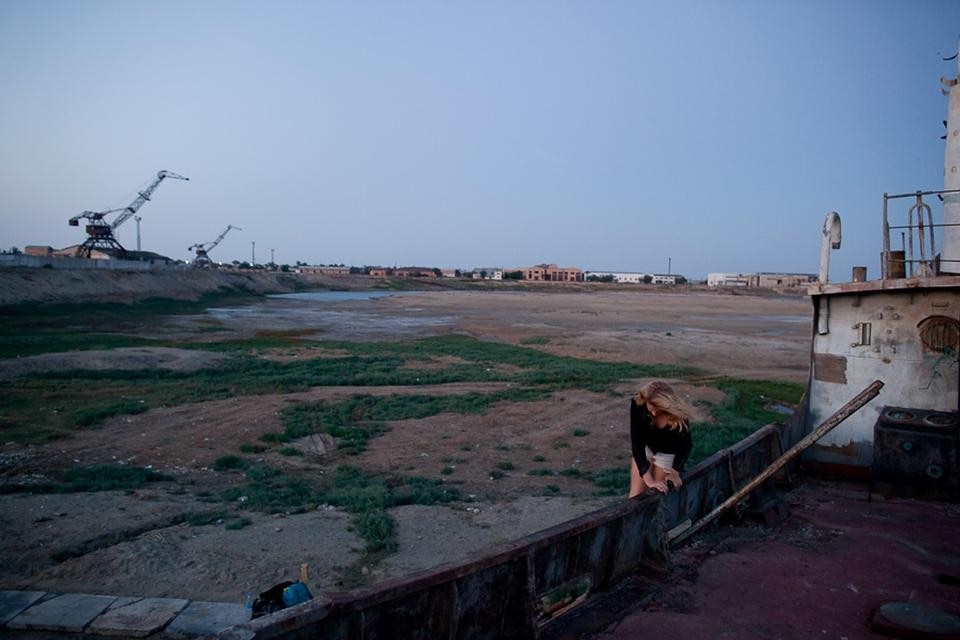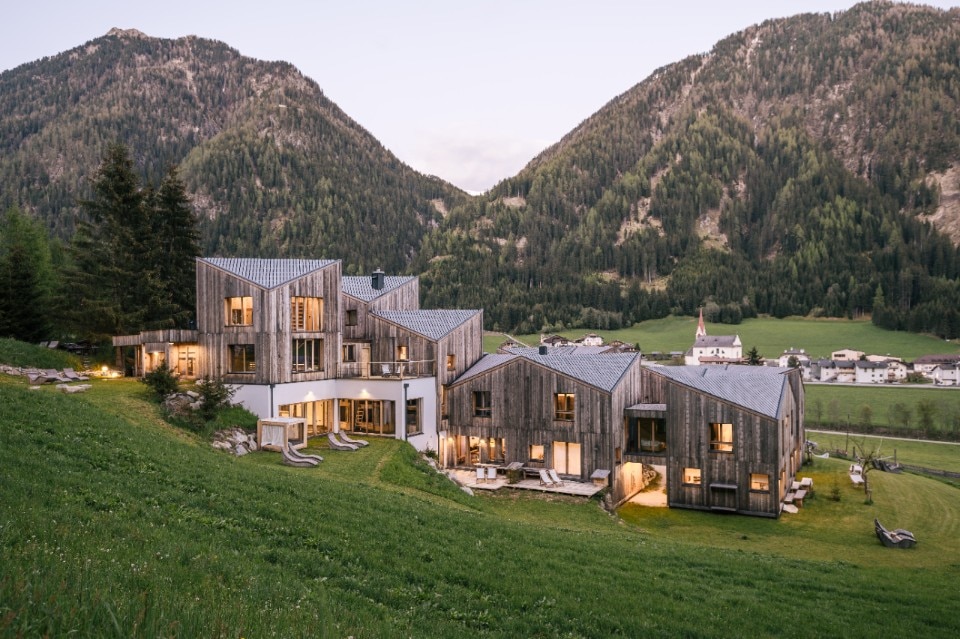Who is Godot?
"I don't seem to be able...(long hesitation) to depart."
–Samuel Beckett, Waiting for Godot
Godot never came, but the action of waiting for him is keeping the characters of the play very busy, they experience time and space in its most fruitful way, they need to fill it up with activities, games, exercises, arguments, discussion to avoid emptiness. Although it often seems passive, waiting is a complex action, and can extend to various lengths, from waiting for getting some cash out, to waiting for the sun to come or the steam to disappear.
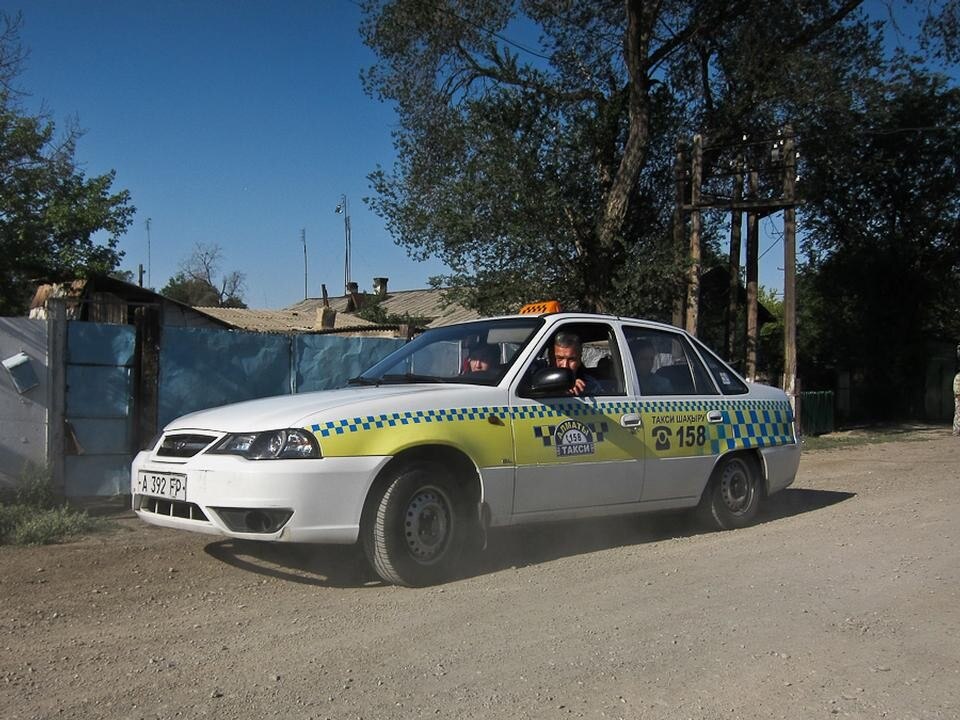
We left Chernobyl; we are now in Kiev, waiting for our plane to Almaty in Kazhastan on our way to the Aral Sea. Most of us have left our respective countries in a rush and we actually didn't do our homework very properly….Apart from the dedicated Will Wiles, our inspiring writer on the trip, none of us really knows what to expect.
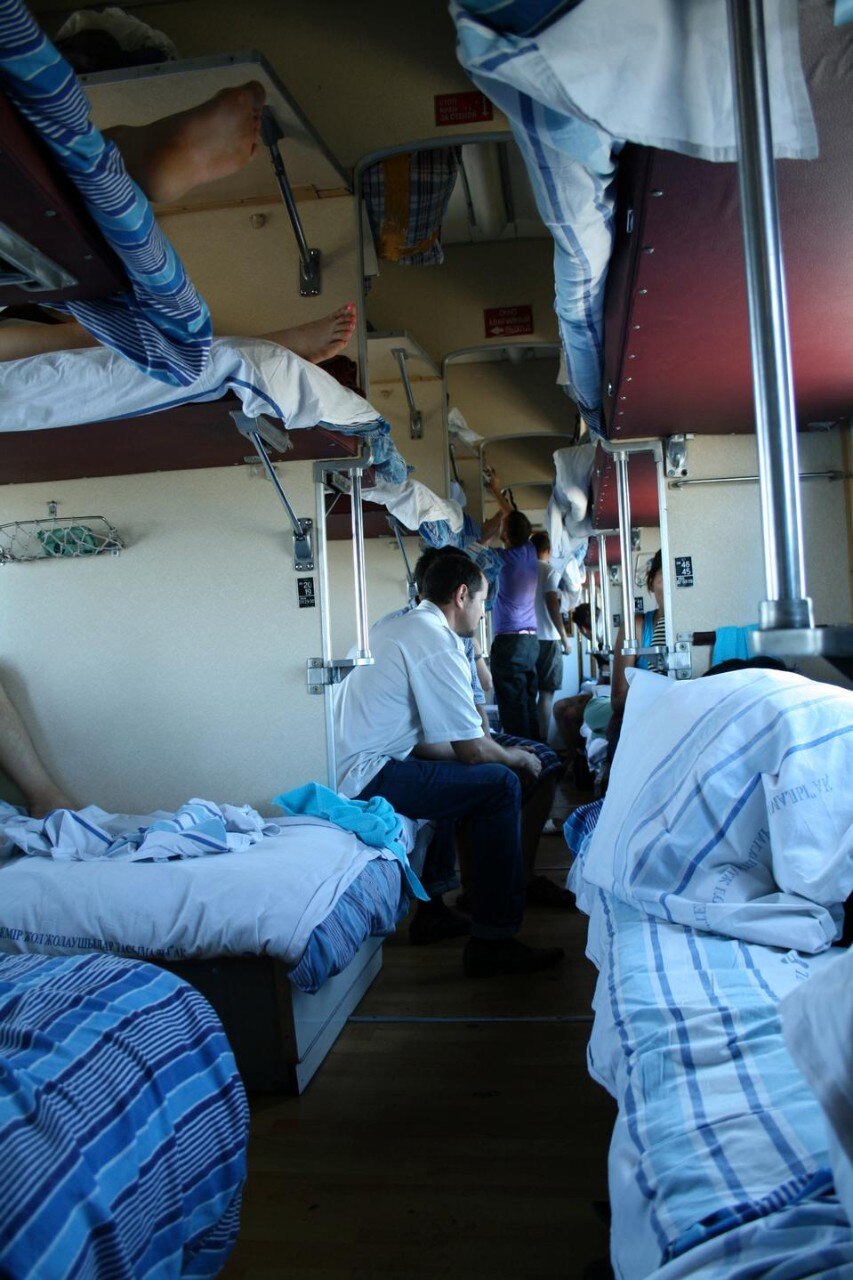
Will it smell like a bucket of salt? Will it smell like dry fishes? Will it smells like rotten meat? Will we find human skeletons? Or will it be recovered by a bright green grass? Will it be the time for the sea to return? With this option in mind, we better get on the boat design case rather quickly. Could we swap Godot for Noe?
We stage and experience waiting. The wind licks our ears and for a moment magic takes place. We wish for the return of Aral sea, for one second could we access the impossible?
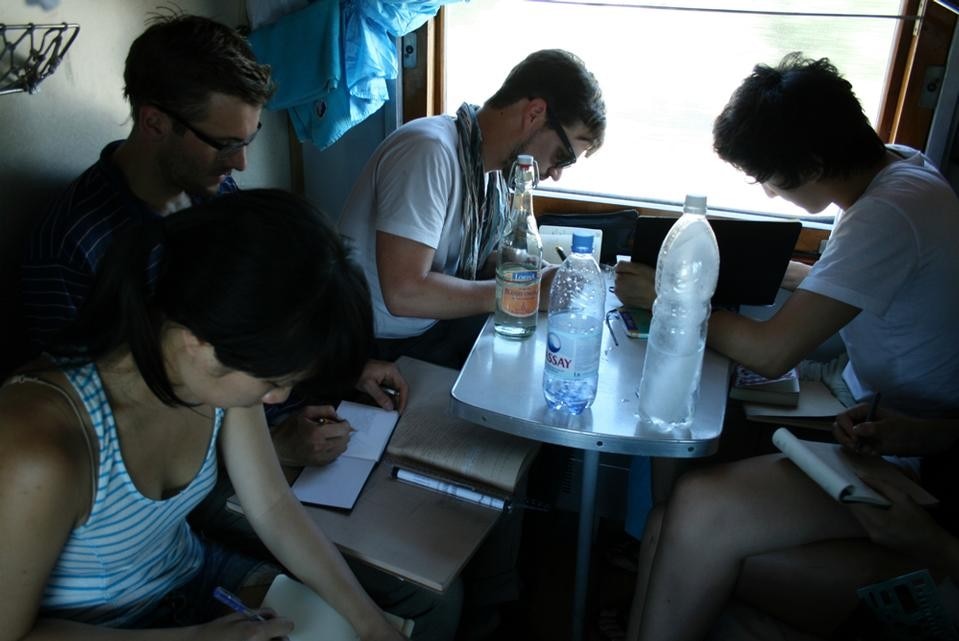
We use the airport space for discussions, eating apricots, discussing J.G Ballard with Pete Collard and how Chernobyl relates to Crash, the visceral need and desire for disaster.
The wait comes to an end. We are boarding.
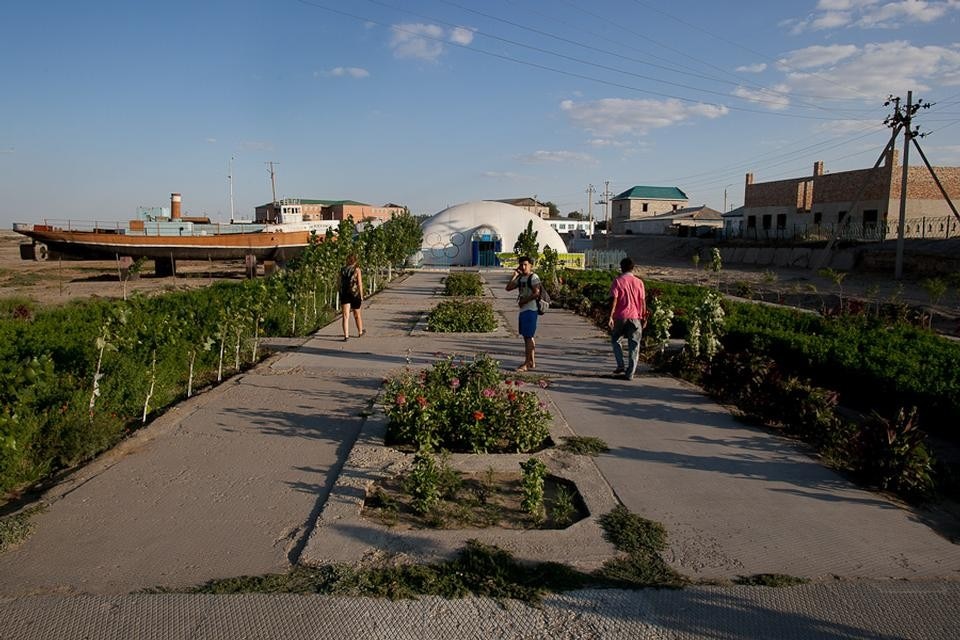
We have just arrived in Almaty… Two hours delay. We are immersed in the speed, flies all around, we need to quickly get out of here!
We have a 33-hour long train ride to catch… We missed it at Almaty… We simply jump into some taxis and off for a two-hour dangerous driving adventure, cars in front of us, cars on the side, and an obviously drunk driver. No seat belts but a surreal landscape. We don't know if we will get there, we are not even sure that our driver knows where we are going….
We need to go 170 KM away from Almaty in a little station called OTAR. Moon landscape, flat surfaces, a real desert, horses eventually.
We make it to the station, an army of 11 taxis, we are all there, what some might call a 'miracle'. We will be waiting for the train to arrive, our tickets are not available anymore so we have eight hours to catch it.
"Let's go. Yes, let's go. (They do not move)."
–Samuel Beckett, Waiting for Godot
It is very sunny; in front a little shop and market, the blue façade. At some point a horse comes by. We think and mythologize the steppe. A failed attempt to jump on the horse.
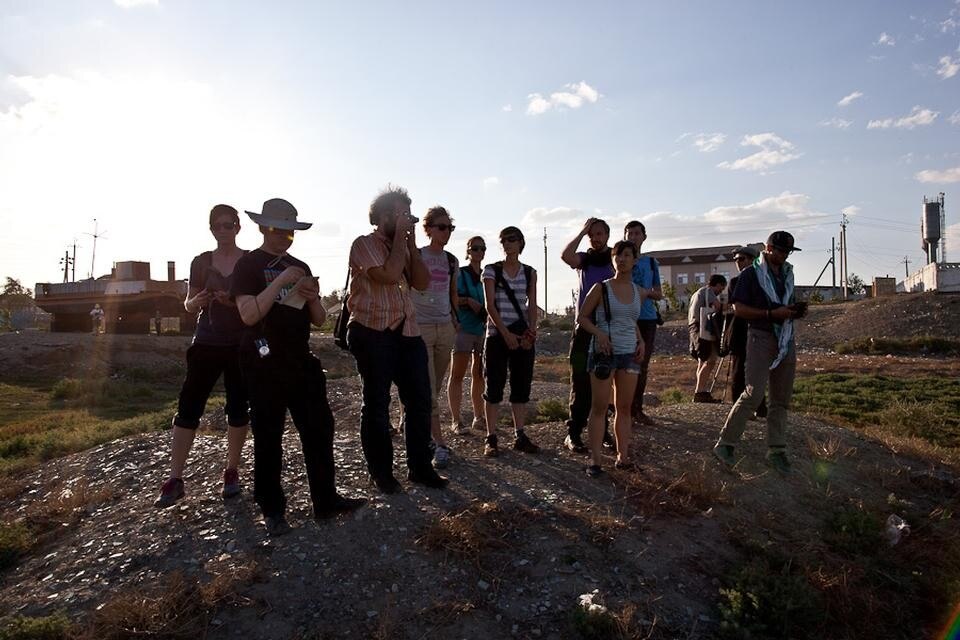
We sleep on our rucksacks, moving around every minute for the smaller trees shadow. Here the sound of the train close by, the mechanical, ting tong of it. We are not sure of what will be happening and if we will manage to get all into this train. But will the train ever come?!
We don't know, none of us know what day it is anymore, we lost notion of time and space, we are experiencing a blank. We are the creative soldiers,
Godot is with us.
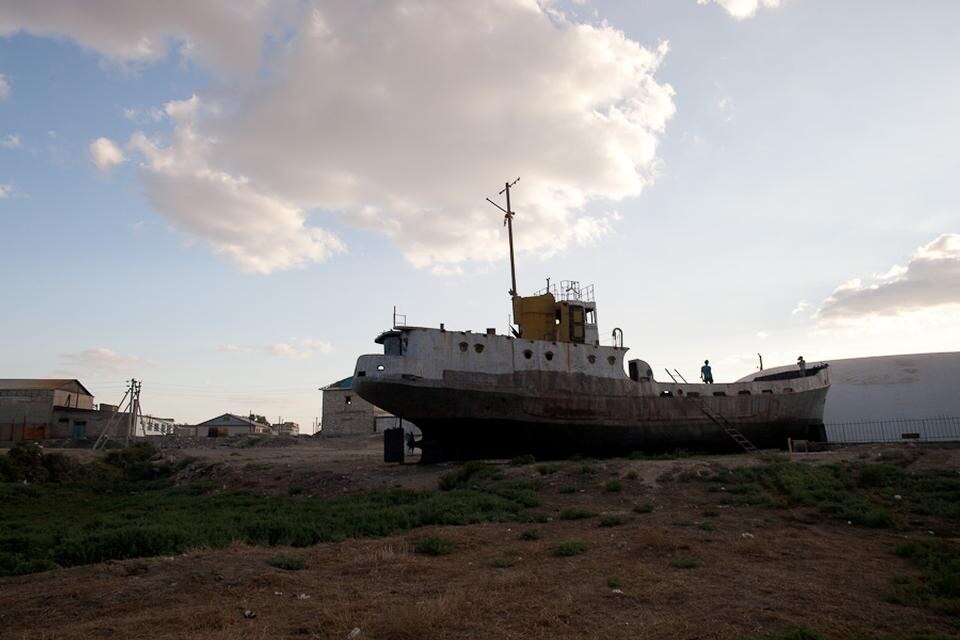
On waiting for the Aral sea to come back
The Aral sea disappeared, it used to be one of the largest lake in the world before Soviet Union attempt to "reengineer it"…. Since 1960 it has been retreating.
Now only a long horizon of empty water is left. We walk on the salty dried lakebed, sometimes like a grey goo, sometimes like a giant crisp.
Antennas appear at the far end as well as dead cadaver of boats. We stage and experience waiting. The wind licks our ears and for a moment magic takes place. We wish for the return of Aral sea, for one second could we access the impossible? Could we make it happen? Like sponges we try the gather all minerals left on and under the ground but we can't really figure out where they are.
Nothing happens, and the experience of the wait becomes infinite.
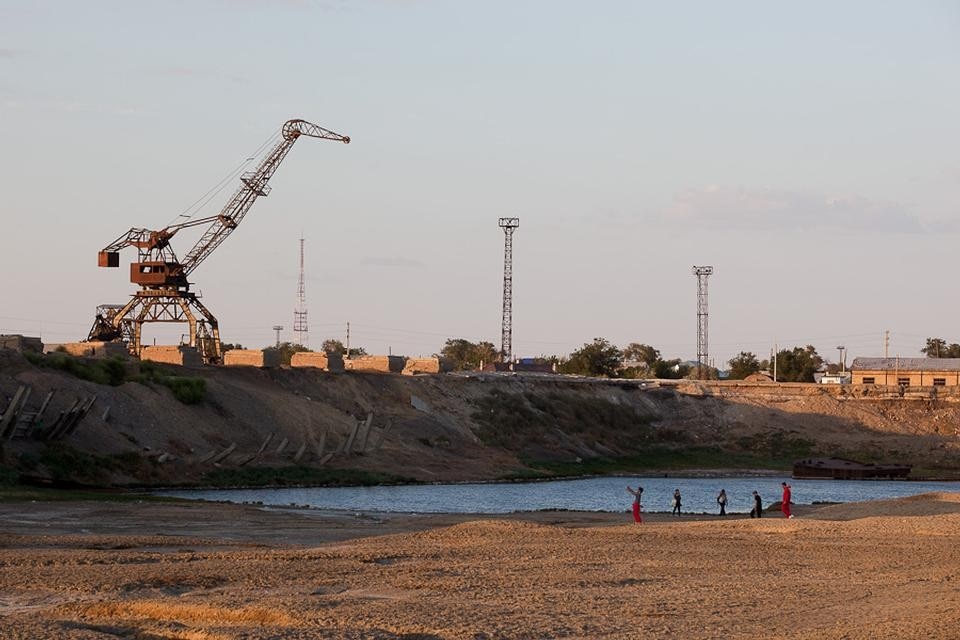
Time to go, the Aral Sea is not back but we have a space launch to go to, we are now off for the next Stop: the Baikonur Cosmodrome for a telescope launch pad 45… We want to burn ourselves close to the telescope's reactor, or maybe be in the cockpit!
A wait for fantasies to come true, for the flying machine to disappear in the stratosphere far in the orbit…
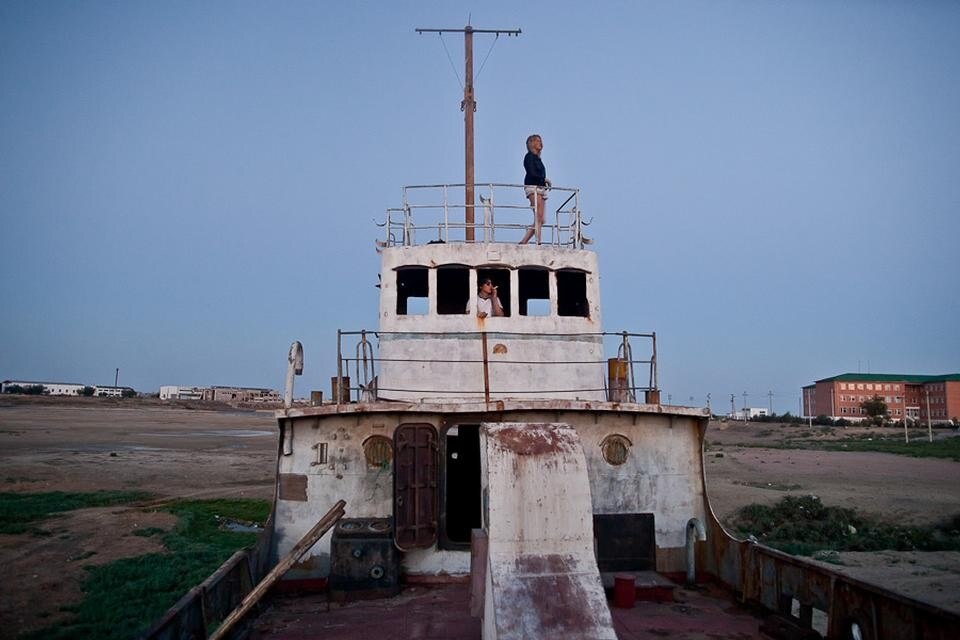
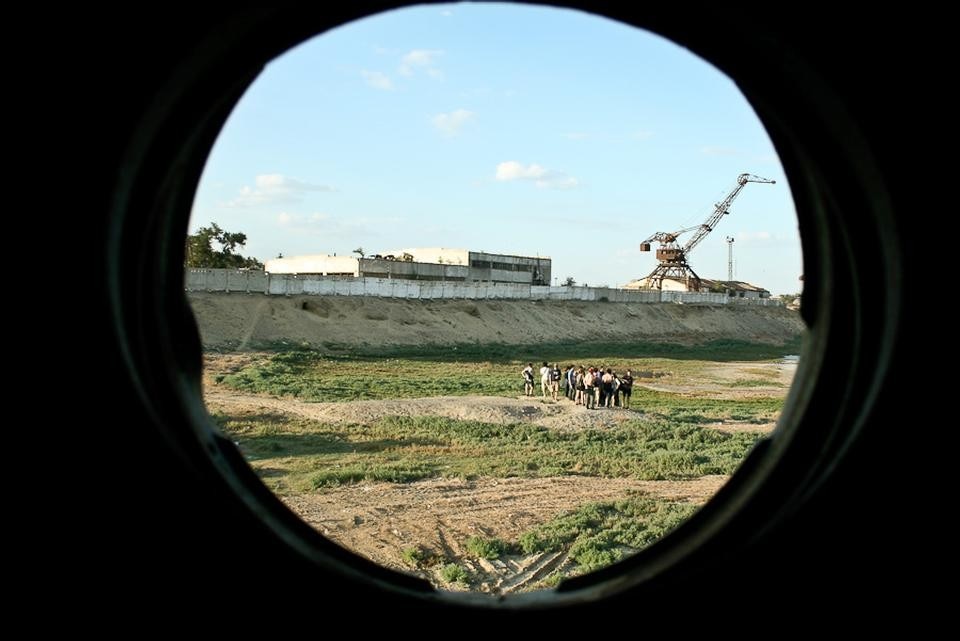
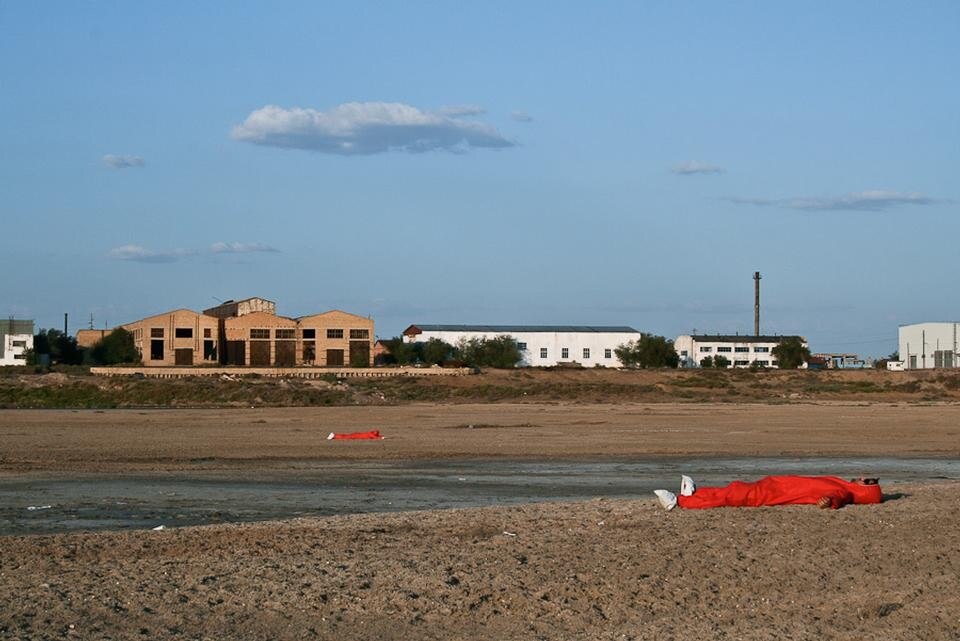
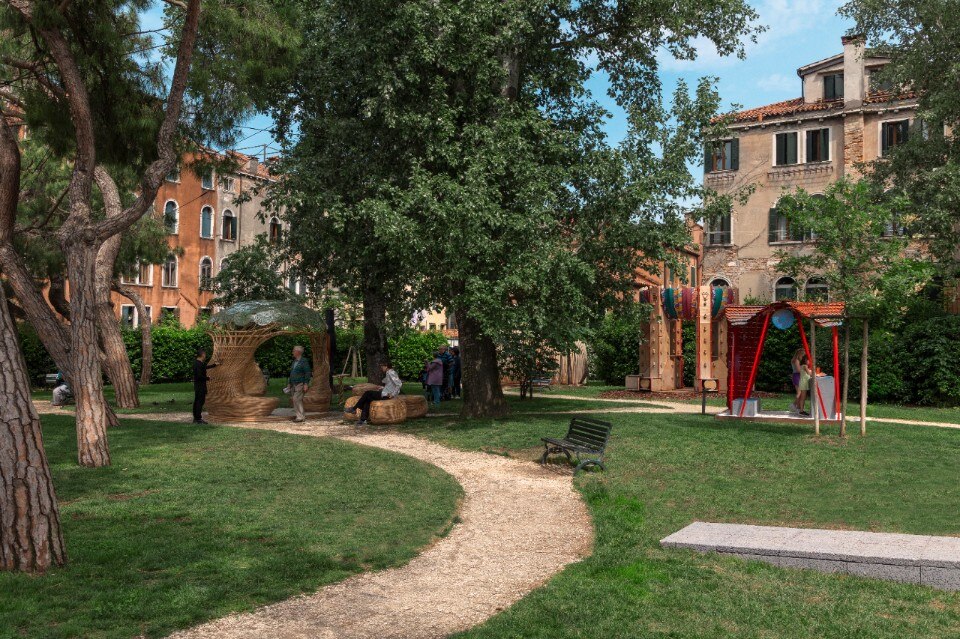
Time Space Existence: the Future of Architecture In Venice
Until November 23, 2025, Venice is the global hub for architectural discussion with "Time Space Existence." This biennial exhibition, spearheaded by the European Cultural Centre, features projects from 52 countries, all focused on "Repairing, Regenerating, and Reusing" for a more sustainable future.


